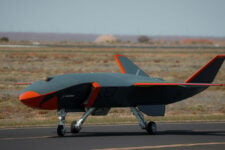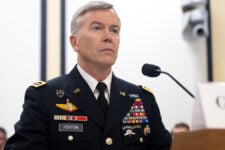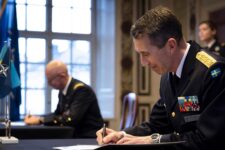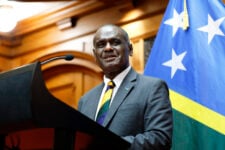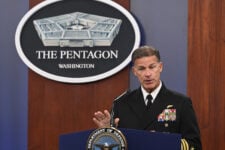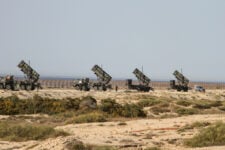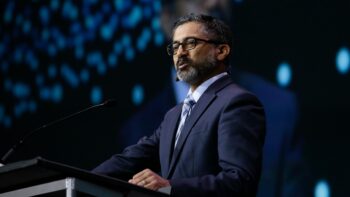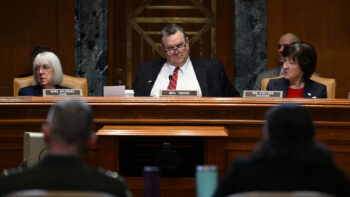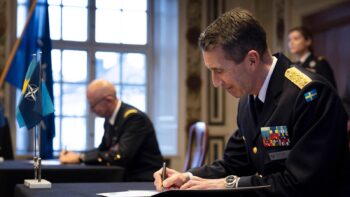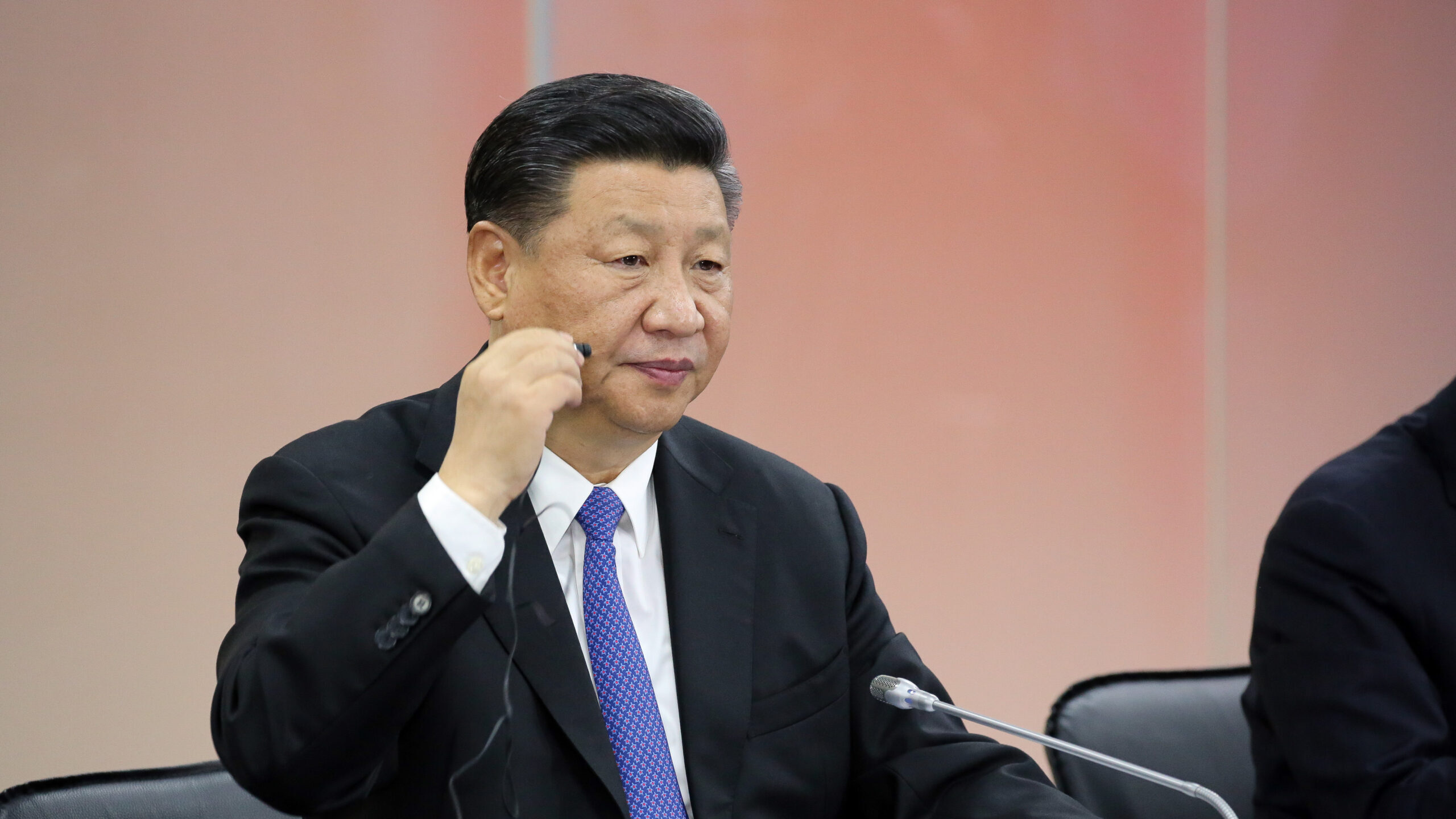
Xi Jinping, China’s president, adjusts his earpiece during a session on the opening day of the Eastern Economic Forum in Vladivostok, Russia, on Tuesday, Sept. 11, 2018. (Andrey Rudakov/Bloomberg via Getty Images)
WASHINGTON — Over the last few months top Pentagon officials have sounded the alarm that their counterparts in China are ignoring their calls. But a senior US Navy official said he suspects that behind the diplomatic cold shoulder is Beijing’s belief that the US sees the hotline as a “safety net,” and that not answering could curb US actions in the region in the first place.
“They… believe that if you have a hotline, that we’re more prone to risky behavior because that’s our kind of safety net,” Rear Adm. Mike Studeman said during an event at the Hudson Institute today. If a crisis emerges, “then they [the US] want an out. They want the ability to negotiate their way out of it. Just don’t give them a safety net, and then maybe they’ll be more conservative with their forces and their behavior.”
Studeman warned that “whatever the logic is, [this] leads to very little official communication now.”
“This is a very dangerous trend in terms of our ability as major powers to truly work out our issues,” he said.
Studeman, a career intelligence officer, is formerly the commander of the Office of Naval Intelligence and will retire in September. He has previously warned that the American public is “naïve” about the threat China poses to the United States.
RELATED: Naval Intelligence admiral: ‘Naïve’ American Public Has A ‘China Blindness’ Problem
Pentagon officials for months now have regularly spoken out against Beijing’s unwillingness to have dialogue with either civilian or uniformed counterparts. Adm. John Aquilino, the commander of US Indo-Pacific Command, said in July he has maintained a standing request for more than two years to speak with his Chinese counterparts, invitations that have gone ignored or declined.
“For responsible defense leaders, the right time to talk is anytime. The right time to talk is every time. And the right time to talk is now. Dialogue is not a reward. It is a necessity,” Defense Secretary Lloyd Austin said at the Shangri-La Dialogue in June. “You know, I am deeply concerned that the PRC [People’s Republic of China] has been unwilling to engage more seriously on better mechanisms for crisis management between our two militaries. But I hope that will change, and soon.”
During congressional hearings last month, some Republicans criticized the White House’s handling of the State Department’s communications with the Chinese government, insisting that the US is coming into the talks from a position of weakness due to an over eagerness to get China to the diplomatic table.
“Respectfully, I would just say we have pursued these diplomatic engagements with China from a position of confidence and strength based on the last two and a half years of work in the administration,” said Daniel Krittenbrink, assistant secretary for east Asian and pacific affairs, during a July 20 hearing before the House Select Committee on the Chinese Communist Party. “From that position, we’re quite confident in engaging with the Chinese.”
During the same hearing, Rep. Carlos Gimenez, R-Fla., repeatedly asked Krittenbrink when was the last time a senior Chinese government official asked to meet with a “high level” American. Following several back-and-forth exchanges with the congressman, Krittenbrink effectively declined to answer the question directly.
“We continue to be asking for all these high level meetings with high level officials in China,” Gimenez said. “We continue to do that… Doesn’t it seem to you like that might be looked at around the world as a sign of weakness that we’re the junior partner?” Krittenbrink said he disagreed, but the congressman cut him off before the assistant secretary could elaborate on the answer.
Last week there appeared to be a slight break in the logjam, when the State Department reported a senior official, Ely Ratner, had spoken with his Chinese counterpart and discussed “US-PRC defense relations, as well as regional security issues.”
“The assistant secretary also emphasized the department’s ongoing commitment to maintaining open lines of military-to-military communication between the United States and the PRC,” the State Department said at the time.


